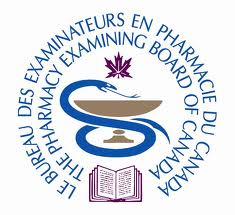Personalized Medicine in Pharmacy: Revolutionizing Patient Care
Personalized medicine, also known as precision medicine, is transforming the field of pharmacy by tailoring medical treatment to the individual characteristics of each patient. This approach considers genetic, environmental, and lifestyle factors to optimize drug selection, dosing, and treatment monitoring. Here’s a closer look at how personalized medicine is making a significant impact in pharmacy:
1. Pharmacogenomics: The Foundation of Personalized Medicine
Pharmacogenomics is the study of how an individual’s genetic makeup affects their response to medications. By identifying genetic variants that influence drug metabolism and efficacy, pharmacists can personalize treatment plans to improve outcomes and reduce adverse effects1.
Applications:
- Drug Selection: Pharmacogenomic testing helps in selecting the most effective medication for a patient based on their genetic profile.
- Dosing: Adjusting drug doses to match a patient’s genetic makeup can enhance efficacy and minimize side effects.
- Adverse Effects: Identifying patients at risk of adverse drug reactions allows for safer prescribing practices.
2. Therapeutic Drug Monitoring (TDM)
Therapeutic drug monitoring involves measuring drug levels in a patient’s blood to ensure therapeutic concentrations are achieved. This is particularly important for drugs with a narrow therapeutic index, where small changes in dose can lead to significant differences in efficacy and toxicity1.
Benefits:
- Optimized Dosing: Ensures that patients receive the right dose for maximum benefit.
- Safety: Reduces the risk of toxicity and adverse effects.
- Efficacy: Improves treatment outcomes by maintaining drug levels within the therapeutic range.
3. Targeted Therapies
Targeted therapies are designed to specifically target the underlying biological pathways of a disease. These treatments are more effective and have fewer side effects compared to traditional therapies1.
Examples:
- Oncology: Genetic tests can identify specific mutations driving tumor growth, allowing for the development of drugs that target cancer cells while sparing healthy tissues.
- Infectious Diseases: Pharmacists can modify antibiotic regimens based on the identification of resistant microorganisms.
4. Personalized Medicine in Chronic Disease Management
Personalized medicine is particularly beneficial in managing chronic diseases such as cardiovascular disorders, diabetes, and neurological conditions. Genetic testing can assist in medication selection and dosing, leading to better management of these conditions1.
Case Studies:
- Cardiovascular Diseases: Pharmacogenomic testing can identify individuals who are more likely to experience adverse effects from specific cardiovascular medications, enabling personalized treatment approaches.
- Neurological Disorders: Genetic testing can help in selecting the most appropriate medications for conditions like epilepsy, improving patient outcomes.
5. Future Prospects and Challenges
As technology and research continue to advance, the potential for personalized medicine in pharmacy is vast. However, there are several challenges to overcome, including data protection, cost and accessibility, and patient acceptance1.
Future Opportunities:
- Advancements in Genetic Testing: Continued research and development in genetic testing will enhance the ability to personalize treatments.
- Integration with Healthcare Systems: Implementing personalized medicine within healthcare systems will require coordinated efforts and investment.
- Education and Training: Pharmacists will need specialized training in pharmacogenomics and personalized medicine to effectively implement these practices.
Conclusion
Personalized medicine is revolutionizing pharmacy by providing tailored treatments that improve patient outcomes and reduce adverse effects. As genetic screening becomes more affordable and pharmacogenetic research diversifies, the role of pharmacists in personalized medicine will continue to grow. By leveraging patient-specific information, pharmacists can optimize drug selection, dosing, and monitoring, ultimately transforming patient care.




Comments